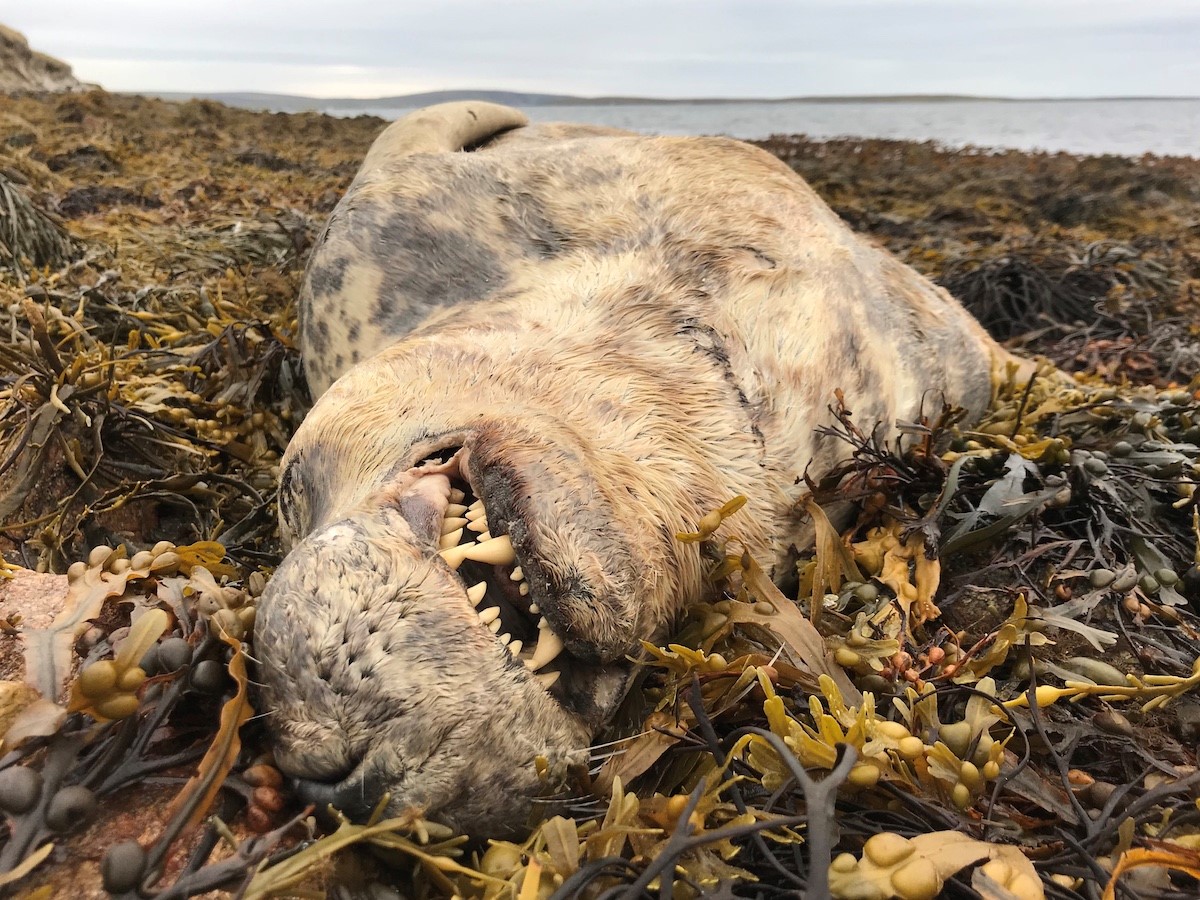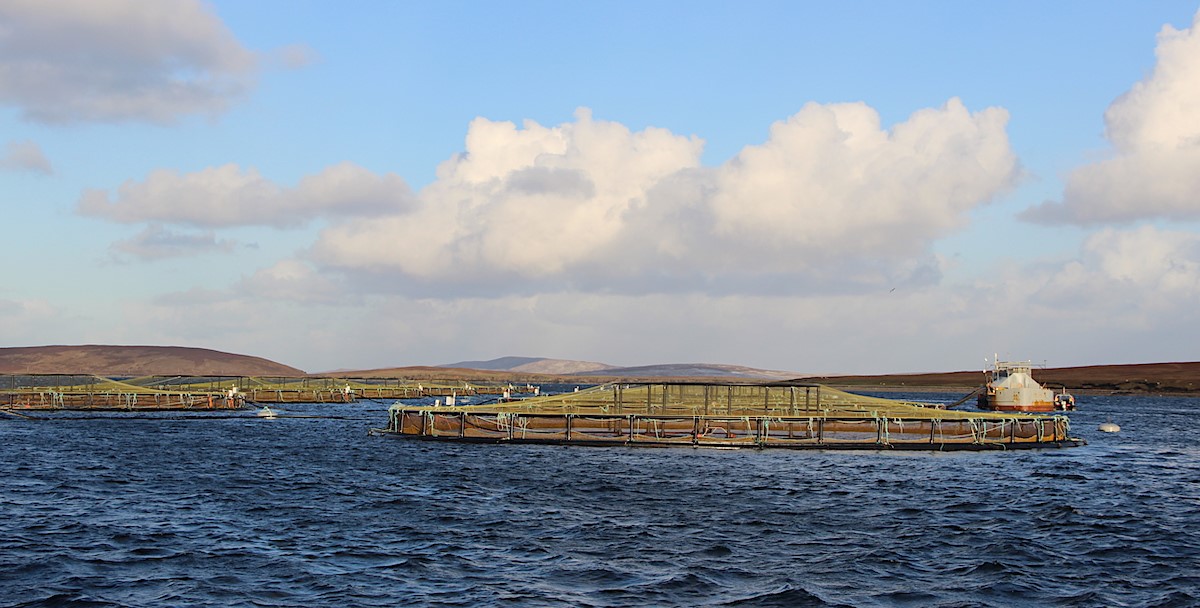
2019 could mark the first time in 40 years that no Shetland Isles seals are shot in the name of protecting salmon stocks.
That’s according to salmon producers in the northern isles, who say multi-million pound investments into anti-predator nets are beginning to show positive results.
Calls to outlaw the shooting of seals in Scotland were made by environmental campaigners after tourists discovered five shot seals on the coastline at Basta Voe on Shetland’s main island.
Following an investigation by Marine Scotland Cooke Aquaculture was fined £2,000 for failing to report the killing of seals in Basta Voe to the licencing authority within 48 hours.
Cooke farm manager David Brown said the company was in the process of investing a total of £4.7 million into anti-predator nets.
Mr Brown said the company has had no issues with seals in the 140 cages so far fitted with the new netting, and expects the number of seals shot on their farms to drop to zero once all the company’s salmon farms are equipped with the new anti-predator netting by the end of 2019.
The other two salmon producers operating in Shetland, Grieg Seafood and Scottish Sea Farms have confirmed that they are investing similar amounts into anti-predator nets
“We don’t want to shoot seals,” said Mr Brown.
“We need to be seen to be working with the natural environment, and prove that salmon farms and seals can co-exist.”
Every year government agency Marine Scotland grants more than 40 licences to salmon farming companies allowing them to shoot seals to protect their stock and gear resulting in 73 seals being shot in Scotland in 2017.
Latest figures complied by the salmon farming industry show that last year (2018) 13 seals were shot in Shetland, eight by Cooke Aquaculture, five by Scottish Sea Farms and none by Grieg Seafood.
Grant Cumming, managing director at Grieg Seafood Shetland said the company was using different solutions to suit different sites.
“Over the past five years we have spent several million pounds on new netting to protect our stock and minimise the risk of seal predation. This has been largely successful and we have not had to shoot any seals in 2018.”
The shift in the industry’s attitude has been welcomed by animal conservation agencies like Hillswick Wildlife Sanctuary.
The sanctuary has a long history of looking after injured or abandoned marine mammals in Shetland, and owners Pete and Jan Bevington have been campaigning to outlaw the shooting of seals for a number of years, arguing that it was detrimental to both the local wildlife and the reputation of an important rural industry.
Mr Bevington said the issue had been left unaddressed for too long, and added: “We are glad that this is now taking place. What we really hope is that this sets some kind of precedent for the salmon industry elsewhere.
“People are not happy hearing about wildlife being killed by industry no matter where and what industry that is. These times have to come to an end.”
Wildlife presenter Lizzie Daly who travelled to Shetland in August to document the seal carcasses washed up at Basta Voe, called for much tougher enforcement of the current licencing regime and added that, ultimately, the shooting of seals should be banned.
“Salmon farms are an important industry for Scotland and the good news is that by investing in these nets it will show how it is possible for them to coexist alongside seals without the loss of fish or the shooting of seals,” she said.
“It’s important for the industry to address that they are in their [the seals’] environment, they are natural predators and the industry should be proud to share waters with seals – one of the UK’s most iconic marine mammals.”

Enjoy the convenience of having The Sunday Post delivered as a digital ePaper straight to your smartphone, tablet or computer.
Subscribe for only £5.49 a month and enjoy all the benefits of the printed paper as a digital replica.
Subscribe